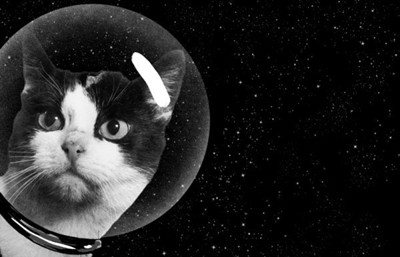This is Scientific American — 60-Second Science. I'm Yasemin Saplakoglu.
Animal astronauts have included monkeys, dogs, mice, and even fruit flies. Most are fondly remembered, except maybe the flies. Laika the dog has a monument in her honor in Moscow. Ham the chimpanzee is buried with a proper plaque at The International Space Hall Of Fame in New Mexico. So where is the love for Félicette?
That's what Matthew Serge Guy wants to know. He's a creative director at the marketing agency Anomaly London. And he's heading an effort to fund a statue for Félicette—the first cat in space.
Félicette briefly strutted into headlines when she took her short flight in 1963. At the time, the effects of launches and weightlessness on the human body were still poorly understood. So, a group of French scientists decided to observe what happens to a floating cat.

Félicette was chosen from a group of 14 intensively space-trained cats. It was either her "calm" demeanor or sleek physique that made her the winner. She was hooked up with electrodes and rocketed to an altitude of nearly 100 miles. After experiencing weightlessness for about five minutes, she parachuted back down in a capsule. Researchers then observed her behavior for a few months, after which she was supposedly sacrificed for study of her brain.
Now, after all these years, Guy created a Kickstarter project that aims to raise nearly $53,000 to build a 1.5-meter bronze statue of Félicette in her hometown of Paris. The deadline is 3:01 A.M. Eastern time on Friday, November 17th. To find the Kickstarter page, just google Kickstarter and space cat.
Donators are eligible for small prizes such as postcards and tote bags. And some larger ones such as recognition on a plaque near the statue. A broader aim of the project is to acknowledge all the animals that were shot into space as unwitting test subjects—a purr-fect opportunity for some credit.
Thanks for listening for Scientific American — 60-Second Science. I'm Yasemin Saplakoglu.












